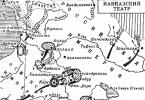Every decent car owner strives to maximize the life of his car. Such intentions of motorists are quite understandable, especially when it comes to such popular cars, How Hyundai Solaris. There is no doubt about the quality and reliability of this model, and this can be seen judging by the numerous reviews of taxi drivers. Many people prefer to service the Hyundai Solaris themselves, not wanting to pay for the services of an expensive dealership Hyundai. This topic is now relevant even for inexperienced motorists. It is enough to complete a few simple procedures to maintain machine reliability. For example, pour oil into the engine. But before that you need to choose the oil, which is an equally important task. In this article we will look at what a high-quality oil for a 1.6-liter engine should be like. Hyundai engine Solaris.
Viscosity is one and critical important parameters by which they choose the right oil. So, in the case of Solaris, it would be preferable SAE viscosity 5W-30. This is the most optimal parameter, designed for modern cars Japanese, American and Korean auto industry. This type of viscosity is suitable for all Hyundai Solaris engines, regardless of their technical condition. As an alternative, we can offer a viscosity level of 10W-40, which is considered more affordable. Another option It is recommended to choose SAE viscosity 5W-40 or 10W-40.
It must be admitted that you should not pay attention to cheap oils with low viscosity levels - especially for engines with serious malfunctions. The fact is that low viscosity negatively affects the reliability of engine components. Such cheap products can contribute to the destruction of the protective oil film, which becomes thinner and loses its strength over time. As a result, all engine parts are subjected to premature wear. It may come down to a major overhaul of the internal combustion engine.
It should also be remembered that the lowest viscosity oil has a short service interval. In other words, such oil will have to be refilled more often due to the high level of evaporation. In this regard, it is better to choose oils with more high viscosity. For example, you should pay attention to liquids with parameters 5W-50, 10W-50, 10W-60, 15W-60, and also 20W-50.
Oil type
There are three types of oils - mineral, synthetic, semi-synthetic. These liquids may have the same properties and specifications, but differ in thickness. Based on the degree of thickness, the oil should be selected for certain temperature conditions. For example, more thick oil preferred for hot climates, while the thinnest oil is recommended for conditions with low temperatures. Mineral oil is considered thicker, and semi-synthetic and synthetic are the rarest oils. For modern engines, such as Solaris 1.6, it is better to use synthetics. From here, three more subtypes of oil can be distinguished according to the degree of fluidity - winter, summer and all-season.
Temperature viscosity is designated as follows - SAE 15W-40. in this case This is a mineral lubricant with a slightly higher kinematic viscosity at 100 degrees. As for reference synthetic oils with a viscosity of 5W-40, such a liquid kinematic viscosity on the contrary, it is underestimated.
Nuances of choosing oil
Most manufacturers, including including Hyundai, it is recommended to fill it exactly synthetic oil. Synthetic with a viscosity of 2-10W-40 is considered more advantageous compared to oil 15-40W. The first option has more fluid properties of the liquid, due to which the oil spreads faster throughout all engine parts. Another undeniable advantage of synthetics is low level ash content This means that such oil will oxidize less compared to mineral water.
For winter operation the best option there will be oil with a viscosity of 5W-50, 10W-50, or 10W-60.
Conclusion
If the engine is relatively new, it is recommended to fill it with synthetic, or as a last resort, semi-synthetic oil. It will be the best option, even despite more high cost compared to mineral lubricant. And if they allow financial opportunities, synthetic oil is best used until the vehicle is completely used.
Video
Hyundai Solaris compact car, which combines cross-country ability, high tech, style and comfort. The vehicle was first released in 2010. The developers adapted the Accent series for the roads of post-Soviet countries.
The car is widely popular and in great demand due to its excellent price-quality ratio. In Russia, the model received exclusively positive reviews even from the most demanding consumers. Hyundai Solaris was first introduced in September 2010.
Manufacturer of this vehicle strongly recommends engine oil Shell Helix Ultra 5W30. Shell is one of the largest multinational energy companies, whose main activity is the production of gas and oil.
In addition, Shell independently produces and processes different kinds petroleum products. These include: gasoline, diesel fuel, fuel oil, motor oil, kerosene and much more. It should be said that products from other manufacturers are also suitable, but such oil must comply Solaris motor its viscosity and tolerance.
On video motor Hyundai oil
Positive properties
Engine oil Shell Helix Diesel Ultra AB-L 5W-30 has many qualities necessary for a car. First of all, it has a stable viscosity and low consumption, which is wasted.
The oil has high antioxidant properties, which are also quite stable. It has a high degree of resistance to shear loads. The updated line of Shell Helix Ultra AB-L 5W-30 oils is in the ULTRA group (the highest level of performance).
It is bottled in the same way as all oils of this category, into canisters dark gray. Shell oils Helix are manufactured according to new advanced technologies on modern factories USA and Europe.
On the video, what oil to pour into the Hyundai Solaris engine:
The indicators of this engine oil are as follows:
- SAE viscosity grade is 5W-30
- Density at 15 degrees Celsius, kg per m3 – 848
- Kinematic viscosity mm2/s at a temperature of 40 degrees is 67.9, while at a temperature of 100 degrees this figure drops to 11.8
- Pour point is -39 degrees
- Viscosity index – 170.
For 1.4 engine
For Hyundai models Solaris equipped with 1.4 liter engine The following motor oils are suitable:

It will also be interesting to find out why the smell of oil appears in the car interior. All information is provided in this
On video, engine oil for Hyundai Solaris 1.6:
Price
Today, the cost of motor oil recommended by the manufacturer on average ranges from 400 to 600 rubles per liter. Products that are not mentioned by the manufacturer can also be used.
Which oil is best for the Opel Astra j 1.4 turbo and which one is chosen by car enthusiasts is described in detail in this
It can cost either cheaper or more, depending on the quality. High-quality oil costs about 800 rubles and using it is often better than listening to the manufacturer’s advice.
17.03.2018
The engine is the part of the car that needs lubrication the most. How to choose suitable oil? After all, the assortment is so large. Store shelves are literally lined with a variety of cans and cans. What kind of oil should I put in Hyundai Solaris?
There are two ways to answer this question.
- Option one. If you don’t want to go into technical details, the easiest way is to follow the manufacturer’s recommendations. Hyundai considers Shell Helix Ultra 5W30 optimal.
- Option two. If a person is sensitive to his car and wants to extend its service life, then it is worth learning more about motor oil, especially about the facts that do not lie on the surface.
Without risk of damaging engine parts, only those technical fluids, which strictly correspond to the parameters given by the manufacturer. They are described in the vehicle's operating manual. The main characteristics of motor oil are viscosity and quality class.
Engine Hyundai Solaris 2013 model year
Viscosity
The ability of an oil film to remain on the surfaces of engine components while maintaining fluidity is viscosity. As a rule, the largest numbers on the canister indicate precisely this parameter. By SAE classification(Society of Automobile Engineers) are two numbers separated by the letter W.
The first number hides the minimum working temperature. For example: the 0W-40 marking indicates that the oil is applicable down to -35C, for a liquid with the 15W-40 characteristic this parameter is -20C.
The second number indicates the minimum viscosity at operating temperature (100C). The higher this number, the more viscous the oil. Better for a new engine lubricant will do thinner, if the mileage exceeds 100 thousand, then it is better to fill in thicker oil.
Quality class
The quality classification was developed by the American Fuels Institute (abbreviated API). Denoted by two letters.
The first determines the type of engine: gasoline or diesel. For the first - S, for the second - C. If the oil is universal, then it bears the S/C mark.
Second letter – level performance characteristics. The standard increases as a letter moves away from the beginning of the alphabet. Today the toughest are SN for gasoline units and CF for diesel.
If no quality class mark is found on the canister, then the oil has not passed the tests and has not received an API certificate.

Korean car, class B, Hyundai Solaris, adapted by designers for Russian roads. He is younger brother another car - the Hyundai Accent, produced for the South Korean market. The car is so popular among Russians that experts call it a bestseller. Judging by technical specifications and operating experience on Russian roads, this model gained its popularity not by chance.
History of appearance in Russia
The Koreans officially presented their new product, Hyundai Solaris, to the Russians back in 2010. The Hyundai company set up production very quickly - already at the beginning of 2011 the first Hyundai Solaris rolled off the assembly line Russian plant, located near St. Petersburg. The Koreans did not skimp, spending half a billion dollars on it. They also called it in Korean - “Hyundai Motoring Manufacturing Rus”. The plant has modern automated equipment.
Hyundai Solaris is available with two engine options - a 1.4 liter with a power of about 100 horses, as well as a 1.6 liter that develops about 120 hp. With. Both have a 16-valve device. The valves are distributed over 4 cylinders. The mechanism of both Gamma series motors is the same. It’s just that the more powerful power unit has a longer piston stroke (85.4 mm, as opposed to 75 mm). There are also two gearboxes - a 5-speed manual and a 4-speed automatic.

By the way, Hyundai was fined in the USA for incorrect data on engine power and fuel consumption. Therefore, approximate figures are given here, in contrast to passport figures.
The gas distribution mechanism of the Hyundai Solaris engine works by being controlled by a chain rather than a belt, which is more reliable option. Body options are a sedan, the most popular among Russians, and a hatchback. In February 2012, the Hyundai Solaris was modernized, correcting some shortcomings in the suspension and other components of the car. On numerous videos presented on the Internet, you can get acquainted with test drives of these cars, get acquainted with their advantages and disadvantages. More recently, Solaris have undergone restyling.
What engine oil is best for Hyundai Solaris? Manufacturer Hyundai recommends the series quality oil Shell Helix. Now there are 5 types of this motor fluid available - HX3, HX6, HX7, HX8, Ultra. The most modern, synthetic motor oil that would be best suited to the Hyundai Solaris is Ultra. It complies with the American Petroleum Institute (API) standard - SN. By standards European ACEA– these are A3/B3, A3/B4.

The above characteristics mean that the quality indicators of this motor fluid - anti-corrosion, anti-wear, detergent and anti-oxidation - are at the highest high level and are designed for new multi-valve and turbocharged engines. Hyundai allows the use of the SM or SL standard. According to the ILSAC standard this is GF4. Therefore, Shell Helix Ultra is quite suitable, since it is even better in quality. You can also use less expensive lubricants from this manufacturer, but also suitable for the Gamma engine - HX7 10W40, HX8 5W-40. It can also be used in the absence of the above synthetic lubricant
Shell Helix HX6 10W40 (API SL). After what time or mileage should replacement be made? lubricating fluid ? When used on quality roads using good gasoline
Synthetic motor fluid should be replaced after 15,000 km or 1 year. But operating conditions in Russia are difficult for many reasons. Therefore, in the Hyundai Solaris, the oil and oil filter need to be changed every 7.5 thousand kilometers.
It is also possible to replace engine fluid from another manufacturer - for example, Motul 8100 Eco-Lite 5W-30 or Motul 8100 X-Cess 5W-40.
How to change lubricant
When it comes to replacing the lubricant in a Hyundai Solaris with your own hands, you need to prepare lubricant, a set of keys, a filter puller, a rag and a brush, as well as an empty container for collecting used lubricant. How much lubricant will need to be added? Both engines require 3.6 liters. The characteristics of the motor fluid are already known. It is important to purchase an original lubricant and not a fake. If you want to get acquainted with the replacement process visually in order to find out everything in more detail, you can find a lot of video materials on this topic on the Internet.
- The work will take place in a certain sequence.
- The hood is lifted and the engine oil filler cap is unscrewed. From below, the engine crankcase is cleaned of dirt - in the area of the plug that closes the hole for draining the lubricant.
- Use a 17mm spanner to unscrew the plug. drain hole by 1-2 turns. An empty container with a volume of 4 liters is placed under it.
- The plug is completely unscrewed and the lubricant is poured out. You have to be careful when doing this - the lubricant is hot. You need to wait a while until everything flows out.
- It is necessary to check the condition of the aluminum washer sealing drain plug. If it has defects, it is better to replace it with a new one.
- After wiping, the plug is twisted and tightened. The engine crankcase is wiped with a rag to remove oil leaks.
- The container again needs to be placed under the oil filter. It turns away by rotating counterclockwise. You need to loosen the filter with a puller, then you can unscrew it by hand.
- The oil filter is removed. WITH seat The filter removes dirt and lubricant leaks.
- Apply engine oil to the rubber ring next to the filter inlets. You can fill it out lubricant composition, about half the volume. Oil filter screwed in by hand. However, you should not overdo it so as not to damage it.
- Through filler neck 3.3 liters of motor fluid will need to be poured into the engine. After this, the neck cap is screwed clockwise.
- We start the engine for a couple of minutes. The warning light should go off insufficient pressure oils in power unit. In addition, there should be no lubricant leaks from under the plug and filter.
- The engine stops. After some time, when the lubricating fluid drains into the oil pan, you need to check the lubricant level and top up if necessary. The level on the dipstick should be in the middle position, between the L (minimum) and H (maximum) marks.
Do-it-yourself replacement of engine fluid in a Hyundai Solaris is complete. As can be seen from the description, even a novice car enthusiast can do this. Now you can drive 7–8 thousand kilometers until the next replacement.
Not many car enthusiasts choose lubricants, pay attention to the class, viscosity group of the motor oil. Most drivers are brand oriented lubricant mixture, prefers expensive products. Unfortunately, this approach to oil selection may end major repairs motor. Therefore, we advise you to familiarize yourself with the requirements for the recommended engine oil for Hyundai Solaris.
Hyundai Solaris 1st generation 2010-2017
The manufacturer of the Hyundai Solaris recommends using lubricants that meet the following standards:
- original Shell Helix engine mixtures;
- according to the system API class SM oils; in the absence of this lubricant, it is allowed to use the SL group;
- according to ILSAC requirements, oil type GF-4 or higher;
- the volume of engine mixture required during replacement for 1.4L/1.6L engines is 3.3 l;
- The maximum consumption of the engine mixture under normal operating conditions is 1 l/1500 km; in severe operating conditions this figure is 1 l/1000 km.
The viscosity of the motor oil is selected according to Table 1, depending on the ambient temperature.
Table 1. Dependence of lubricant viscosity on temperature outside the machine.
- SAE 20W-50, if the air temperature is above -6 0 C;
- 15W-40, at temperatures above -15 0 C;
- 10W-30, if the air temperature is more than -18 0 C;
- 5W-20 or 5W-30 in temperature range from -30 0 C (or less) to +50 0 C (or more).
*1 - contribute to fuel economy motor fluids having the following characteristics:
- viscous SAE indicator 5W-20;
- oil type by API classifications- SM;
- according to ILSAC requirements - GF-4.
Hyundai Solaris 2nd generation from 2017
According to the operating instructions for the Hyundai Solaris, the car manufacturer recommends using motor mixtures that meet the requirements:
- Shell Helix branded lubricants;
- according to API classification - SM, if such a lubricant is not available, it is allowed to cast class SL;
- according to ILSAC standards - GF-4 or higher;
- in accordance with ACEA - A5/B5, in the absence of such a lubricant, it is permissible to use ILSAC GF-3 or ACEA - A3 (or a higher class);
- the maximum lubricant consumption under normal operating conditions is 1 l/1500 km; in severe operating conditions this figure is 1 l/1000 km.
- The viscosity of the lubricating fluid is selected according to Table 2, based on the temperature of the region in which the machine will be operated.
Table 2. Selection of lubricant mixture viscosity depending on ambient temperature.
According to Table 2, taken from the Hyundai Solaris manual, for engines intended for use in Russia, for example, Kappa 1.4 MPI, you need to pour motor oils:
- 20W-50 at temperatures above -5 0 C;
- 15W-40, if the air temperature is above -12 0 C;
- 10W-30 at a temperature of more than -20 0 C;
- 0W-20, 0W-30, 5W-20, 5W-30 in the temperature range from -30 0 C (or less) to +50 0 C (or more).
The selection of the recommended engine oil viscosity for Hyundai Solaris in the case of Kappa 1.4 MPI engines used in the Middle East, as well as for Gamma 1.6 MPI engines, is carried out according to a similar principle, according to Table 2.
*1 - reach fuel efficiency car allow oils with the following parameters:
- viscosity SAE 5W-20;
- By API system- SM;
- in accordance with ILSAC standards - GF-4.
*3 - maximum fuel economy, ensured by the use of SAE 5W-30 motor mixtures.
The volume of lubricant required during replacement is:
- 3.5 l for Kappa 1.4 MPI engines;
- 3.6 l for Gamma 1.6 MPI engines.
Conclusion
Recommended engine oil for Hyundai Solaris contributes to the fuel efficiency of the vehicle, increases the service life of the engine and components lubrication system, provides high efficiency ICE. Pick up the right lubricant You can follow the recommendations outlined in the car manual. In this case, it is necessary to take into account the air temperature of the region in which the machine will be used. In the summer, thick lubricants are poured, in the winter, thinner mixtures are poured. All-season motor oils are used all year round if their operating temperature corresponds temperature conditions region in which the car will be driven.
Also take into account the base from which the oil is made and the presence of tolerances on the lubricant container. Synthetic and semi-synthetic lubricants are recommended to be poured into new cars; older models are preferable mineral liquids. Tolerances indicate the possibility of using motor oil for a specific car model.



